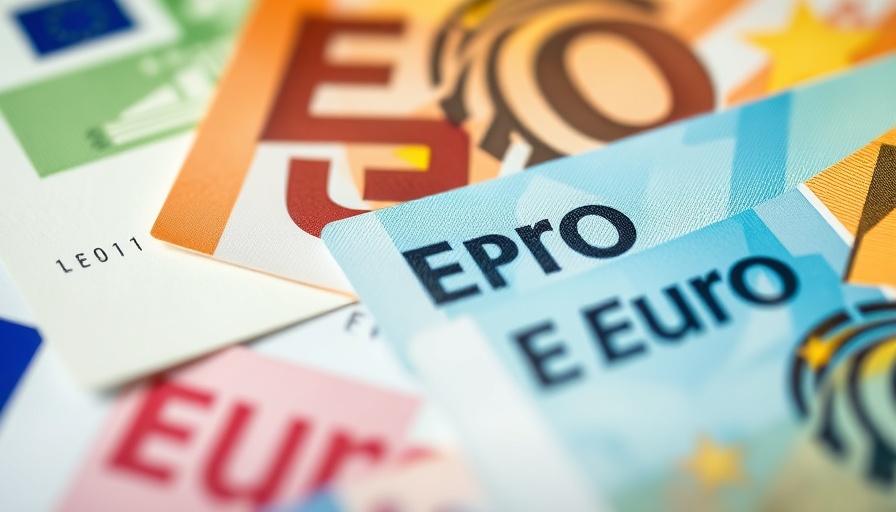
Why the Euro’s Rise Matters to You
The Euro has gained significant attention lately as investment banks forecast its continued rally. For everyday consumers and small business owners, this could mean more than just a number; it could directly impact your finances. An increasing Euro means imported goods could fluctuate in price, potentially leading to changes in what you pay at the store or for services that rely on overseas products.
Understanding the Drivers Behind the Rally
Several factors are contributing to the Euro’s strength. Economic data from the Eurozone has started to show promising signs of recovery post-pandemic, with rising consumer confidence and employment rates. This is coupled with a steady increase in interest rates set by the European Central Bank, which typically strengthens a currency as it yields higher returns for investors. If you're considering investments or savings, it’s crucial to understand these dynamics—higher interest rates could mean more favorable conditions for saving in Euros.
Effects on Travel and Living Expenses
If you have plans to travel to Europe or are considering purchasing goods from overseas, the strong Euro could affect your budget significantly. While European countries may offer beautiful sights and enticing products, a stronger Euro means you’ll need to spend more of your home currency to buy the same things. This change in value could reshape your travel plans, requiring careful budgeting.
The Global Landscape and Comparisons
Comparing the Euro’s performance to the US dollar, you may notice that as the Euro rises, the dollar may struggle against it. Historical data suggests that currency movements often align with broader economic trends. For instance, since the pandemic, currencies have fluctuated wildly based on economic stimulus and recovery efforts in various regions. Understanding this global interconnectedness helps you grasp why currency values matter beyond borders.
Looking Ahead: What This Means for Your Finances
As individuals navigate their personal finances, paying attention to shifts in currency can yield insights into making better economic decisions. For instance, you may want to reconsider where you purchase goods or whether it’s a good time to travel. Being proactive in monitoring these changes can ensure your financial strategies align with current market conditions.
Tips for Adapting to Currency Changes
1. **Watch Currency Trends**: Familiarize yourself with how the Euro and other major currencies fluctuate. Tools like currency converters and financial news apps can keep you informed.
2. **Budget for Travel**: If you’re planning a trip, use a budgeting app that accounts for fluctuating exchange rates, ensuring you’re well-prepared for the costs involved.
3. **Explore Local Alternatives**: Local goods often provide effective alternatives to imported products that could become more expensive. Supporting local businesses not only helps your community but could save you money.
Final Thoughts
As the Euro continues its ascent, the implications for consumers and investors are profound. Understanding these changes is pivotal for making informed choices in personal finance and investment. Whether planning a trip to Europe or deciding where to shop, awareness of currency trends can turn potential challenges into opportunities.
Stay informed, budget wisely, and adapt your plans as needed. Your financial future may depend on it!
 Add Row
Add Row  Add
Add 




Write A Comment